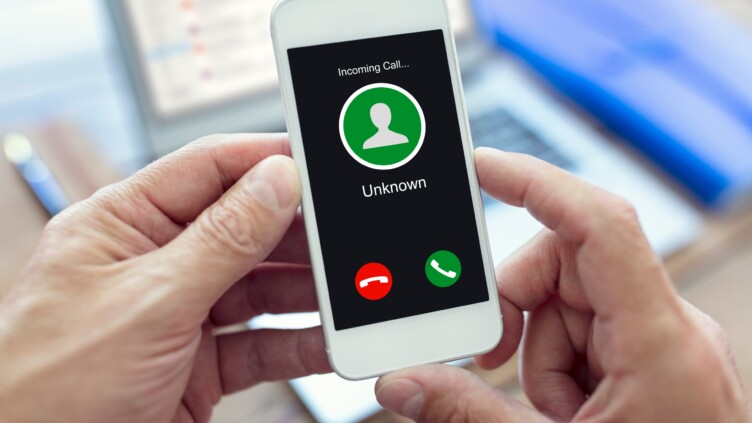Government Impersonation Scams Are On The Rise!
By SCARS Editorial Team – Society of Citizens Against Relationship Scams Inc.
Government Impersonation Scams: What You Need to Know
In today’s digital age, scammers have found new avenues to exploit unsuspecting individuals, and one of the most insidious forms of deception is government impersonation scams. These scams involve fraudsters posing as government officials or agencies to manipulate victims into disclosing sensitive information, making fraudulent payments, or engaging in other illegal activities. This article aims to shed light on the dangers of government impersonation scams, the tactics employed by scammers, and ways to protect oneself from falling victim.
A Type of Fraud
Government impersonation scams are a type of fraud where scammers pretend to be from a government agency, such as the IRS, Social Security Administration, FTC or Department of Justice. They may call, email, or text you and claim that you owe money, have committed a crime, or are under investigation. They may then demand that you pay a fine or penalty, or provide them with personal or financial information.
Government Impersonation Scams Are A Serious Threat
In 2022, the Federal Trade Commission (FTC) received over 2.5 million reports of these scams, with consumers losing over $2 billion.
The Dangers Of Government Impersonation
Government impersonation scams pose a serious threat on multiple levels, targeting individuals, their finances, and the public’s trust in governmental institutions.
Here are some of the dangers of government impersonation scams:
- You could lose money. Scammers often demand payment in gift cards, wire transfers, or cryptocurrency, which are difficult to trace. Once you send them money, it is unlikely that you will get it back.
- Your personal information could be stolen. Scammers may ask for your Social Security number, bank account information, or other sensitive information. Once they have this information, they could use it to commit identity theft or other crimes.
- You could be arrested. Scammers may threaten to have you arrested if you don’t pay them. This is a scare tactic, but it can be effective, especially if you are elderly or vulnerable.
More Dangers
- Financial Loss: Scammers use various tactics, such as fake tax demands, lottery winnings, or debt collection threats, to coerce victims into providing money or personal information. Many victims, believing they are dealing with legitimate government representatives, fall prey to these scams, resulting in significant financial losses.
- Identity Theft: Government impersonators often seek personal details, including Social Security numbers, bank account information, or passport details. Armed with this information, scammers can perpetrate identity theft, leading to severe financial and emotional consequences for the victims.
- Exploitation of Fear and Authority: Scammers exploit the trust people place in government institutions and play on their fears of legal consequences or loss of benefits. By impersonating law enforcement officials, tax agents, or immigration authorities, they manipulate victims into complying with their demands out of fear or a belief that non-compliance will lead to severe consequences.
- Erosion of Public Trust: Government impersonation scams not only harm individual victims but also erode public trust in legitimate governmental agencies. When people lose faith in the authenticity of government communication, it becomes more challenging for officials to disseminate important information and carry out their duties effectively.
What To Do If You Are Contacted by A Government Impersonator
If you receive a call, email, or text from someone claiming to be from a government agency, here are some tips to help you avoid a scam:
- Don’t panic. Scammers often try to make you feel scared or threatened. Take a deep breath and try to stay calm.
- Hang up the phone. Don’t give out any personal or financial information over the phone. If you are unsure whether the call is legitimate, hang up and call the agency directly using a number you know is legitimate.
- Check the caller ID. Scammers often spoof caller ID numbers to make it look like they are calling from a legitimate government agency. Don’t trust the caller ID number.
- Don’t click on links in emails. Scammers often send emails with links that, when clicked, will take you to a fake website that looks like a real government website. Don’t click on any links in emails from people you don’t know.
- Be suspicious of any unsolicited requests for money or personal information. Legitimate government agencies will never call or email you out of the blue and demand money or personal information.
Very Important
- Verify the Caller’s Identity: Government agencies typically do not make unsolicited calls demanding immediate action or personal information. If someone claims to be from a government entity, hang up and independently verify their identity by contacting the official agency through a trusted phone number or email obtained from reliable sources.
- Guard Personal Information: Be cautious when sharing personal details, especially over the phone or through email. Government agencies rarely request sensitive information via unsolicited calls or emails. Refrain from providing personal or financial information unless you have verified the legitimacy of the communication.
- Educate Yourself: Stay informed about common scams and the tactics employed by scammers. Familiarize yourself with the procedures and policies of legitimate government agencies to differentiate between genuine communication and fraudulent attempts.
- Report Suspicious Activity: If you receive a suspicious call or encounter a potential government impersonation scam, report it to your local law enforcement agency, the Federal Trade Commission (FTC), or the appropriate government agency. By reporting such incidents, you contribute to raising awareness and helping authorities track down and apprehend scammers.
- Spread Awareness: Share information about government impersonation scams with family, friends, and community members. Educating others about the dangers and warning signs can prevent more individuals from falling victim to these fraudulent schemes.
How To Avoid a Government Impersonator Scam
Scammers pretend to be calling you from government agencies like the Social Security Administration and the IRS. Or say they work for Medicare. They say that if you don’t pay or you refuse to give them your personal information, something bad will happen. Or maybe you’ll miss out on some government benefit. But it’s a scam.
Learn the signs and avoid the scam
A government impersonator scam often starts with a call, email, or text message from someone who says they’re with a government agency. They might give you their “employee ID number” to sound official. And they might have information about you, like your name or home address.
They often say they work for the Social Security Administration, the IRS, or Medicare — but sometimes they give you fake agency names, like the non-existent National Sweepstakes Bureau. They’ll also give you some reason why you need to send money or give them your personal information immediately. If you get a call like this, hang up the phone. It’s a scammer.
Because government agencies won’t call, email, or text you and ask for money or personal information. Only a scammer will do that.
How to avoid the scam
- Don’t wire money, send cash, or use gift cards or cryptocurrency to pay someone who says they’re with the government. Scammers ask you to pay these ways because it’s hard to track that money, and almost impossible to get it back. They’ll take your money and disappear.
- Don’t give your financial or other personal information to someone who calls, texts, or emails and says they’re with the government. If you think a call or message could be real, stop. Hang up the phone and call the government agency directly at a number you know is correct.
- Don’t trust your caller ID. Your caller ID might show the government agency’s real phone number or even say “Social Security Administration,” for example. But caller ID can be faked. It could be anyone calling from anywhere in the world.
- Don’t click on links in unexpected emails or text messages. Scammers send emails and text messages that look like they’re from a government agency, but are designed to steal your money and your personal information. Don’t click on any link, and don’t pass it on to others. Simply delete the message.
Report Government Impersonators
If you think you may have been the victim of a government impersonation scam, you should report it to the Federal Trade Commission (FTC) at ReportFraud.ftc.gov. You can also file a complaint with your state’s consumer protection agency.
Summary
Government impersonation scams pose a significant threat to individuals and society at large. By preying on people’s trust in governmental institutions, scammers manipulate victims into providing personal information or making fraudulent payments, causing financial loss, identity theft, and erosion of public trust. By staying vigilant, educating ourselves, and reporting suspicious activities, we can protect ourselves and help combat these scams. Remember, genuine government agencies prioritize your safety and will not pressure you into making hasty or unsafe decisions.
Stay informed, stay cautious, and together we can unmask the dangers of government impersonation scams.
By being aware of the dangers of government impersonation scams and taking steps to protect yourself, you can help to avoid becoming a victim.
More:
- FTC Impersonation Scams (romancescamsnow.com)
- Impersonation of Law Enforcement and Government Officials (romancescamsnow.com)
- Avoid Government Impersonation Scams – Especially Social Security Phone Scams – A Victim’s Story [VIDEO] (romancescamsnow.com)
- FTC Issues Annual Report to Congress on Agency’s Actions to Protect Older Adults | Federal Trade Commission
- New Government Impersonation Scam Warning (romancescamsnow.com)
- Police Impersonation Scam Phone Calls – How Scams Work (romancescamsnow.com)
- SCARS™ Scam Basics: Courier Fraud / Police or Bank Impersonation Scams (romancescamsnow.com)
- Types Of Scams – A New Taxonomy (romancescamsnow.com)
- Scam Basics: IRS Scams (romancescamsnow.com)
- Fake FBI Agent (romancescamsnow.com)
More ScamsNOW.com Articles
-/ 30 /-
What do you think about this?
Please share your thoughts in a comment below!
SCARS LINKS: AgainstScams.org RomanceScamsNOW.com ContraEstafas.org ScammerPhotos.com Anyscam.com ScamsNOW.com
reporting.AgainstScams.org support.AgainstScams.org membership.AgainstScams.org donate.AgainstScams.org shop.AgainstScams.org
youtube.AgainstScams.org linkedin.AgainstScams.org facebook.AgainstScams.org
TABLE OF CONTENTS
CATEGORIES
![NavyLogo@4x-81[1] Government Impersonation Scams Are On The Rise!](https://scamsnow.com/wp-content/uploads/2025/04/NavyLogo@4x-811.png)
ARTICLE META
Important Information for New Scam Victims
- Please visit www.ScamVictimsSupport.org – a SCARS Website for New Scam Victims & Sextortion Victims.
- SCARS Institute now offers its free, safe, and private Scam Survivor’s Support Community at www.SCARScommunity.org – this is not on a social media platform, it is our own safe & secure platform created by the SCARS Institute especially for scam victims & survivors.
- SCARS Institute now offers a free recovery learning program at www.SCARSeducation.org.
- Please visit www.ScamPsychology.org – to more fully understand the psychological concepts involved in scams and scam victim recovery.
If you are looking for local trauma counselors, please visit counseling.AgainstScams.org
If you need to speak with someone now, you can dial 988 or find phone numbers for crisis hotlines all around the world here: www.opencounseling.com/suicide-hotlines
Statement About Victim Blaming
Some of our articles discuss various aspects of victims. This is both about better understanding victims (the science of victimology) and their behaviors and psychology. This helps us to educate victims/survivors about why these crimes happened and not to blame themselves, better develop recovery programs, and help victims avoid scams in the future. At times, this may sound like blaming the victim, but it does not blame scam victims; we are simply explaining the hows and whys of the experience victims have.
These articles, about the Psychology of Scams or Victim Psychology – meaning that all humans have psychological or cognitive characteristics in common that can either be exploited or work against us – help us all to understand the unique challenges victims face before, during, and after scams, fraud, or cybercrimes. These sometimes talk about some of the vulnerabilities the scammers exploit. Victims rarely have control of them or are even aware of them, until something like a scam happens, and then they can learn how their mind works and how to overcome these mechanisms.
Articles like these help victims and others understand these processes and how to help prevent them from being exploited again or to help them recover more easily by understanding their post-scam behaviors. Learn more about the Psychology of Scams at www.ScamPsychology.org
SCARS INSTITUTE RESOURCES:
If You Have Been Victimized By A Scam Or Cybercrime
♦ If you are a victim of scams, go to www.ScamVictimsSupport.org for real knowledge and help
♦ SCARS Institute now offers its free, safe, and private Scam Survivor’s Support Community at www.SCARScommunity.org/register – this is not on a social media platform, it is our own safe & secure platform created by the SCARS Institute especially for scam victims & survivors.
♦ Enroll in SCARS Scam Survivor’s School now at www.SCARSeducation.org
♦ To report criminals, visit https://reporting.AgainstScams.org – we will NEVER give your data to money recovery companies like some do!
♦ Follow us and find our podcasts, webinars, and helpful videos on YouTube: https://www.youtube.com/@RomancescamsNowcom
♦ Learn about the Psychology of Scams at www.ScamPsychology.org
♦ Dig deeper into the reality of scams, fraud, and cybercrime at www.ScamsNOW.com and www.RomanceScamsNOW.com
♦ Scam Survivor’s Stories: www.ScamSurvivorStories.org
♦ For Scam Victim Advocates visit www.ScamVictimsAdvocates.org
♦ See more scammer photos on www.ScammerPhotos.com
You can also find the SCARS Institute’s knowledge and information on Facebook, Instagram, X, LinkedIn, and TruthSocial
Psychology Disclaimer:
All articles about psychology and the human brain on this website are for information & education only
The information provided in this and other SCARS articles are intended for educational and self-help purposes only and should not be construed as a substitute for professional therapy or counseling.
Note about Mindfulness: Mindfulness practices have the potential to create psychological distress for some individuals. Please consult a mental health professional or experienced meditation instructor for guidance should you encounter difficulties.
While any self-help techniques outlined herein may be beneficial for scam victims seeking to recover from their experience and move towards recovery, it is important to consult with a qualified mental health professional before initiating any course of action. Each individual’s experience and needs are unique, and what works for one person may not be suitable for another.
Additionally, any approach may not be appropriate for individuals with certain pre-existing mental health conditions or trauma histories. It is advisable to seek guidance from a licensed therapist or counselor who can provide personalized support, guidance, and treatment tailored to your specific needs.
If you are experiencing significant distress or emotional difficulties related to a scam or other traumatic event, please consult your doctor or mental health provider for appropriate care and support.
Also read our SCARS Institute Statement about Professional Care for Scam Victims – click here
If you are in crisis, feeling desperate, or in despair, please call 988 or your local crisis hotline – international numbers here.
More ScamsNOW.com Articles
A Question of Trust
At the SCARS Institute, we invite you to do your own research on the topics we speak about and publish. Our team investigates the subject being discussed, especially when it comes to understanding the scam victims-survivors’ experience. You can do Google searches, but in many cases, you will have to wade through scientific papers and studies. However, remember that biases and perspectives matter and influence the outcome. Regardless, we encourage you to explore these topics as thoroughly as you can for your own awareness.

























![scars-institute[1] Government Impersonation Scams Are On The Rise!](https://scamsnow.com/wp-content/uploads/2025/04/scars-institute1.png)

![niprc1.png1_-150×1501-1[1] Government Impersonation Scams Are On The Rise!](https://scamsnow.com/wp-content/uploads/2025/04/niprc1.png1_-150x1501-11.webp)